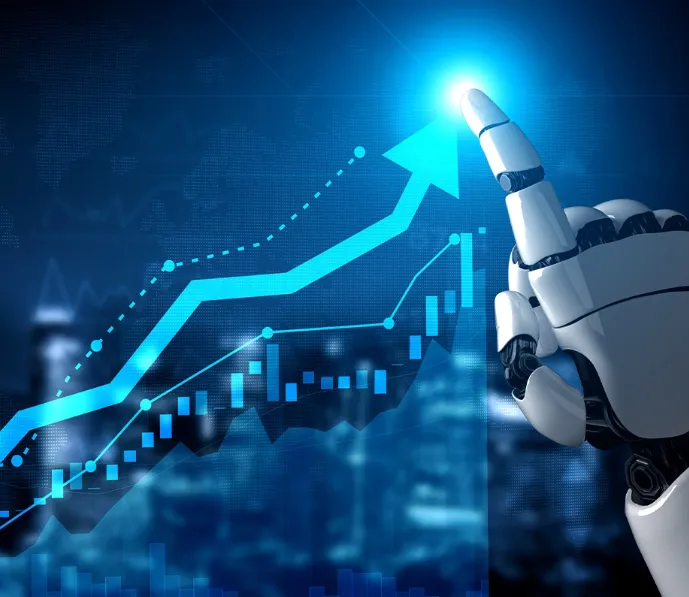AI and Traditional Medicine: Balancing Innovation with Cultural Integrity

At the 2025 AI for Good Global Summit in Geneva, three major international organizations—the World Health Organization (WHO), the International Telecommunication Union (ITU), and the World Intellectual Property Organization (WIPO)—unveiled a technical brief focused on artificial intelligence in traditional medicine. Titled Mapping the Application of Artificial Intelligence in Traditional Medicine, the document outlines how AI can be applied to enhance healthcare while respecting cultural traditions and data ownership.
The report highlights innovative projects already underway. In India, the Ayurgenomics initiative merges genetic data with Ayurvedic principles to predict disease risks and create personalized health strategies. In South Korea, researchers are employing AI to analyze natural compounds used in traditional medicine to find new treatments for blood-related disorders. These examples reflect how AI is opening doors to more tailored care, new drug discoveries, and even biodiversity preservation.
A central theme of the brief is the importance of protecting Indigenous Data Sovereignty. The authors emphasize that any use of traditional knowledge must be based on free, prior, and informed consent. Case studies from Canada, New Zealand, and Australia demonstrate how community-led governance can help safeguard Indigenous knowledge systems. The report urges governments to adopt policies that ensure Indigenous communities remain in control of their cultural and medical data.
Risks and Challenges
While the potential is vast, the application of AI in traditional medicine comes with significant challenges. Poorly regulated AI systems can undermine cultural heritage, exploit traditional knowledge without proper acknowledgment, and deepen inequities where digital infrastructure is weak. Developers and policymakers are called on to establish strong ethical frameworks, maintain high standards of data quality, and ensure that AI systems are designed inclusively. Without these safeguards, AI risks causing more harm than good, particularly for vulnerable communities.
Opportunities and Benefits
On the other hand, when applied responsibly, AI can transform healthcare. Algorithms are already assisting doctors by monitoring patient symptoms, predicting risks, and supporting faster, more accurate diagnoses. Personalized treatment plans based on real-time patient data are becoming increasingly feasible, and AI-powered virtual assistants may soon provide round-the-clock guidance tailored to individual health needs.
In research, AI accelerates drug discovery by identifying effective compounds and predicting successful combinations, which can drastically reduce both costs and timelines. Clinical trials also benefit from AI tools that streamline data analysis and patient outcome tracking. Medical imaging is another area where AI has proven its worth, often matching the diagnostic accuracy of human radiologists in detecting conditions like breast cancer at earlier stages.
Closing Thoughts
The new WHO-ITU-WIPO brief offers a roadmap for integrating AI into traditional medicine in ways that respect cultural heritage while advancing healthcare innovation. Addressing risks such as biopiracy, lack of consent, and unregulated commercialization will be crucial for ensuring ethical and equitable use. At the same time, the technology’s ability to enhance diagnosis, personalize treatments, and accelerate medical research demonstrates its transformative power. Striking the right balance between innovation and cultural responsibility will determine how fully AI can benefit both modern and traditional medicine.
AI and Traditional Medicine: Balancing Innovation with Cultural Integrity
At the 2025 AI for Good Global Summit in Geneva, three major international organizations—the World Health Organization (WHO), the International Telecommunication Union (ITU), and the World Intellectual Property Organization (WIPO)—unveiled a technical brief focused on artificial intelligence in traditional medicine. Titled Mapping the Application of Artificial Intelligence in Traditional Medicine, the document outlines how AI can be applied to enhance healthcare while respecting cultural traditions and data ownership.
The report highlights innovative projects already underway. In India, the Ayurgenomics initiative merges genetic data with Ayurvedic principles to predict disease risks and create personalized health strategies. In South Korea, researchers are employing AI to analyze natural compounds used in traditional medicine to find new treatments for blood-related disorders. These examples reflect how AI is opening doors to more tailored care, new drug discoveries, and even biodiversity preservation.
A central theme of the brief is the importance of protecting Indigenous Data Sovereignty. The authors emphasize that any use of traditional knowledge must be based on free, prior, and informed consent. Case studies from Canada, New Zealand, and Australia demonstrate how community-led governance can help safeguard Indigenous knowledge systems. The report urges governments to adopt policies that ensure Indigenous communities remain in control of their cultural and medical data.
Risks and Challenges
While the potential is vast, the application of AI in traditional medicine comes with significant challenges. Poorly regulated AI systems can undermine cultural heritage, exploit traditional knowledge without proper acknowledgment, and deepen inequities where digital infrastructure is weak. Developers and policymakers are called on to establish strong ethical frameworks, maintain high standards of data quality, and ensure that AI systems are designed inclusively. Without these safeguards, AI risks causing more harm than good, particularly for vulnerable communities.
Opportunities and Benefits
On the other hand, when applied responsibly, AI can transform healthcare. Algorithms are already assisting doctors by monitoring patient symptoms, predicting risks, and supporting faster, more accurate diagnoses. Personalized treatment plans based on real-time patient data are becoming increasingly feasible, and AI-powered virtual assistants may soon provide round-the-clock guidance tailored to individual health needs.
In research, AI accelerates drug discovery by identifying effective compounds and predicting successful combinations, which can drastically reduce both costs and timelines. Clinical trials also benefit from AI tools that streamline data analysis and patient outcome tracking. Medical imaging is another area where AI has proven its worth, often matching the diagnostic accuracy of human radiologists in detecting conditions like breast cancer at earlier stages.
Closing Thoughts
The new WHO-ITU-WIPO brief offers a roadmap for integrating AI into traditional medicine in ways that respect cultural heritage while advancing healthcare innovation. Addressing risks such as biopiracy, lack of consent, and unregulated commercialization will be crucial for ensuring ethical and equitable use. At the same time, the technology’s ability to enhance diagnosis, personalize treatments, and accelerate medical research demonstrates its transformative power. Striking the right balance between innovation and cultural responsibility will determine how fully AI can benefit both modern and traditional medicine.







